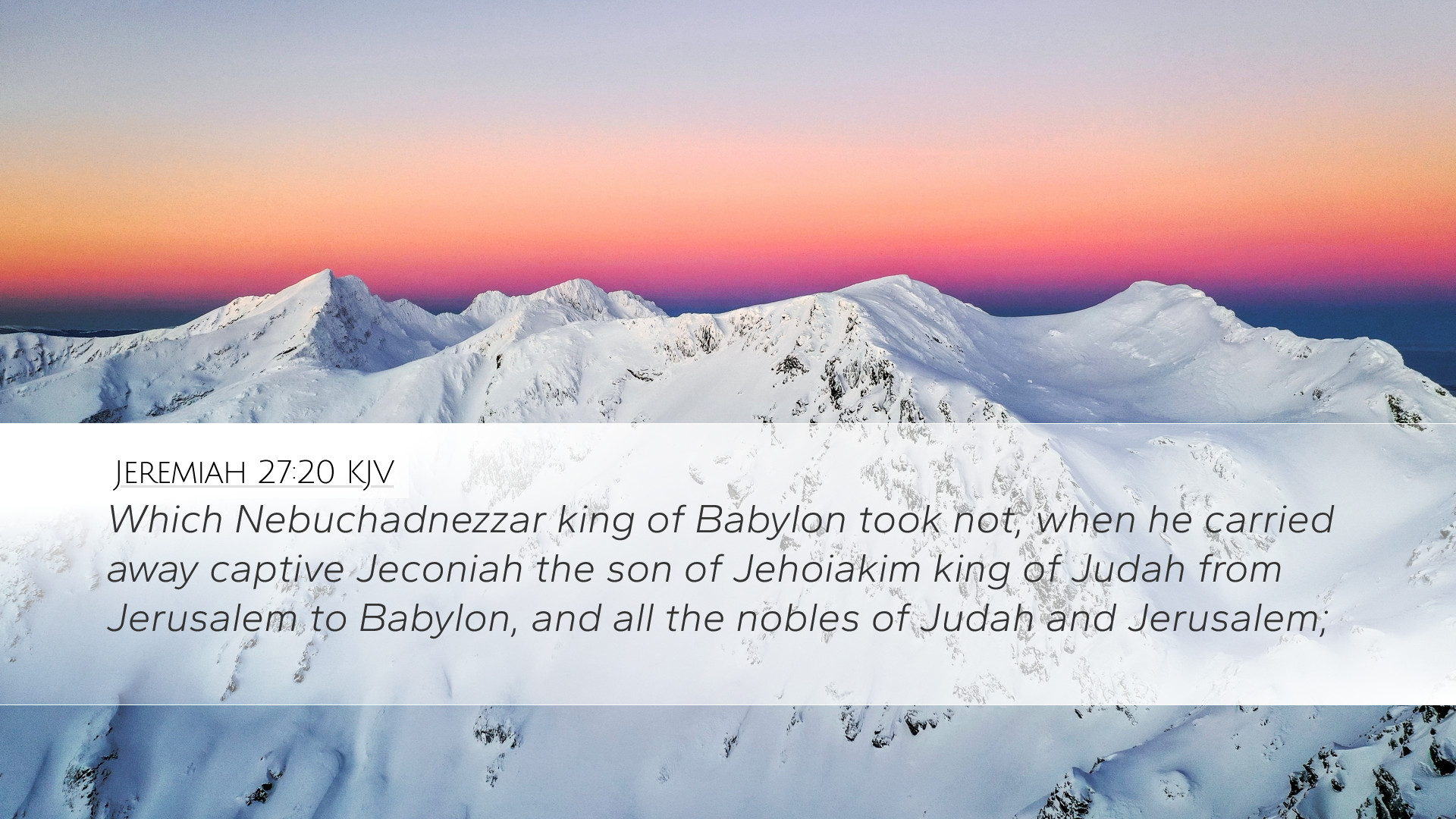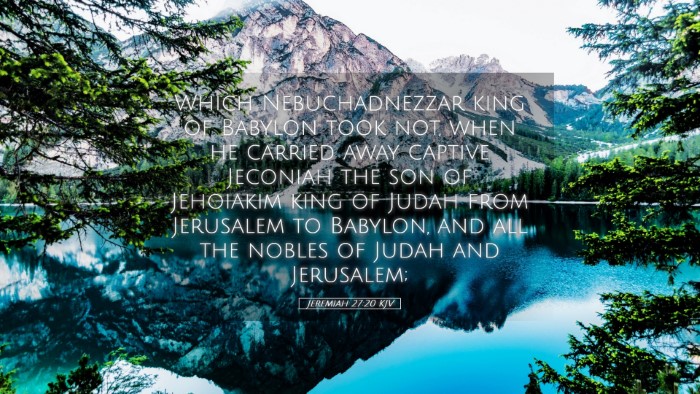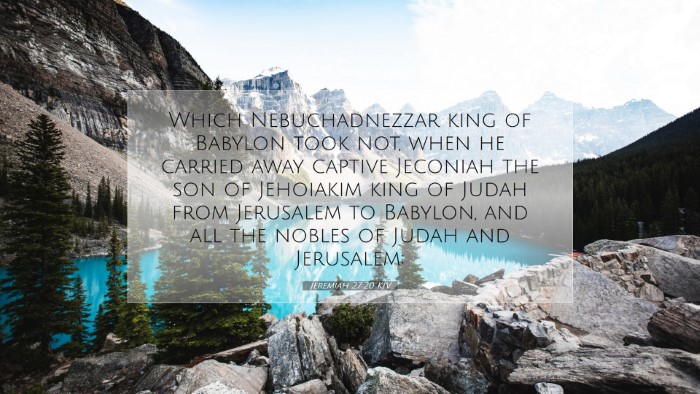Commentary on Jeremiah 27:20
Jeremiah 27:20 states:
"Which Nebuchadnezzar king of Babylon took not away when he carried away captive Jeconiah the son of Jehoiakim king of Judah, and the princes of Judah, and the craftsmen, and the mighty men of valor, from Jerusalem to Babylon."
Context and Background
This verse occurs within a pivotal context in the Book of Jeremiah, emphasizing the sovereignty of God in the affairs of nations and the futility of resistance against His purposes. It is also significant in the historical narrative concerning the Babylonian exile.
Historical Setting
During the reign of Jehoiakim, Judah was under significant threat from Babylon. Nebuchadnezzar's capture of Jerusalem and subsequent exile of its leading citizens was a divine judgment upon a nation that had strayed from its covenant with God. The mention of Jeconiah and the exiled people underscores the gravity of the situation and the ultimate plans God has for His people.
Commentary Insights
-
Matthew Henry's Commentary:
Henry highlights the importance of the "vessels" mentioned, noting they symbolize the treasures of the temple and the people’s pride. He emphasizes that God allowed this captivity as a means of judgment and correction for His people. This verse serves as a reminder to believers of the consequences of straying from faithfulness to God.
-
Albert Barnes' Notes:
Barnes comments on the phrase "which Nebuchadnezzar king of Babylon took not away," noting the significance of the vessels remaining in Jerusalem. He suggests that this signifies God's continued protection of a remnant in Jerusalem and a hope for restoration. The unremoved vessels reflect God’s mercy and a promise of future favor for Jerusalem.
-
Adam Clarke's Commentary:
Clarke elaborates on the vessels that remained, arguing they were left intentionally by God to serve a future purpose. He interprets this as an assurance that while destruction and exile occurred, God's promise to His people was not fully negated. Clarke emphasizes the theme of eventual restoration and the enduring hope found in God’s promises, reinforcing the importance of maintaining faith through trials.
Theological Implications
This verse establishes several key theological concepts:
-
Divine Sovereignty:
It reaffirms that God is sovereign over nations and historical events. The carrying away of captives is not merely a political maneuver but a divine decree aimed at shaping the destiny of a nation.
-
Judgment and Mercy:
In spite of the severe judgment, the retention of certain vessels reveals God's mercy. This duality showcases God’s character—justice coupled with the assurance of eventual grace and restoration.
-
Hope in Restoration:
The mention of "the vessels" symbolizes not only the past glory of Jerusalem but also the hope of future restoration. This is crucial for ecclesiastical and personal application for believers today who may find themselves in periods of exile or suffering.
Practical Applications
For pastors, students, and theologians, Jeremiah 27:20 serves as both a caution and a source of encouragement:
- Reflect on how faithfulness to God influences a community's well-being. The consequences of collective straying are not limited to the unfaithful; they impact all.
- Encourage congregations to remain steadfast in hope, understanding that challenges often come with divine purpose, and God’s ultimate plan for restoration remains intact.
- Use the example of the vessels to teach about God’s providence and the importance of waiting patiently for His fulfillment of promises, even in times of hardship.
Conclusion
Jeremiah 27:20 stands as a profound reminder of God’s control over history, the balance of His judgment with mercy, and the hope that lies in His promises. Engaging with this verse through the lens of historical context, theological significance, and practical application can enrich the understanding and faith of those who seek to study and teach the Word.


